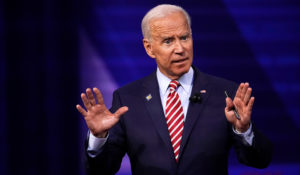They say John F. Kennedy was the first TV president. TV was becoming mainstream which allowed debates to be transmitted nationally. This meant for the first time a candidate didn’t only have to sound good and articulate well, they also had to look the part.
I believe Twitter is the new medium that has changed the standards for politicians. Except instead of being pleasant to look at, Twitter demands politicians exhibit how relatable they are.
The examples are everywhere. I believe Barack Obama was the first to use Twitter to speak directly to the people. And obviously now Donald Trump has solidified Twitter’s place as a communication tool. But I’m more so talking about the politicians that, for lack of a better phrase, have started to live among the people. Twitter has rocketed Alexandria Ocasio-Cortez to superstadom as she uses the platform to “go live” and answer questions while she eats mac and cheese in her pajamas. It has given Elizabeth Warren a place to post the most adorable videos of her dog or help people with their dating lives. It gave Hilary Clinton the ability to “clap back” during her Presidential run.
Politicians have always tried to come off relatable. Twitter has only amplified this. My question is if it’s an effective strategy. My overall feeling is that being relatable online is mostly a fallacy. The likes, the retweets, and most of all the “Yas Queen”s just don’t translate to votes. It almost feels like we’re having two separate elections concurrently: One online and one in real life. And the winner of both is rarely the same person.
I’m not knocking these candidates for trying to relate to the public because it’s obviously somewhat important. I’m just nervous that we’re getting excited about the wrong type of affirmation. In the online space, likes and retweets ARE votes. It’s our way to say we support something. Thus, it’s easy to forget that these don’t count as actual votes. I know that sounds silly and is a bit of an exaggeration. I’m just saying that we have to stop being shocked or disappointed when someone who has gained online popularity ultimately doesn’t win an election.



